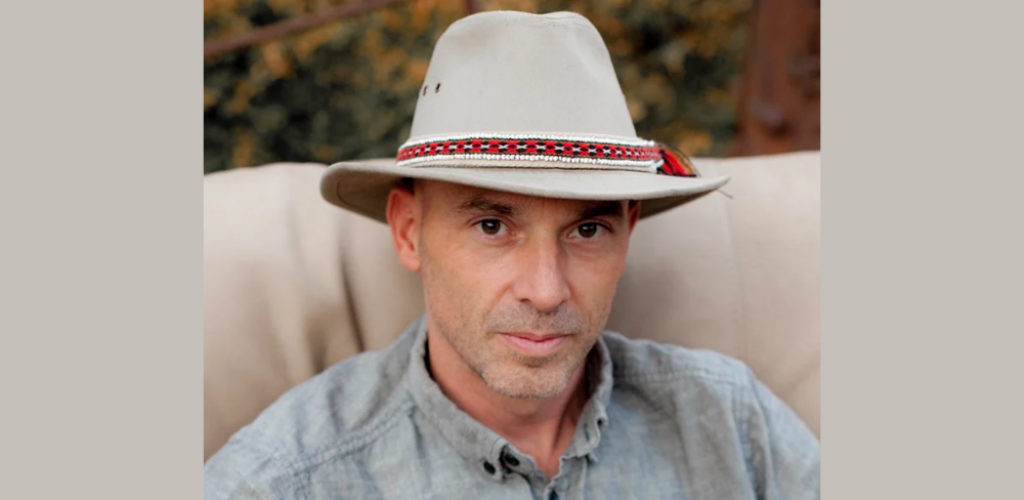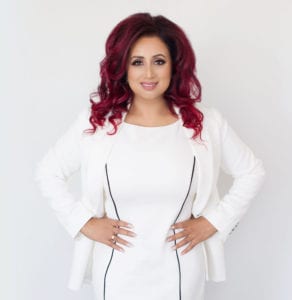Raj Girn: My guest today is the author of War in the Hearts of Men. A very provocative title indeed. And here’s a bit about him before we say hello. He is an army veteran who went on a quest around the world to research the bigger questions around human existence through ancient cultures and religions. That’s just a little bit. He’s obviously going to share so much more than that. His book provides a perspective on, among other things, identifying and interpreting the historical ideologies that have worked to suppress the feminine and ultimately create great imbalance in our world. Something we are all still affected from today, regardless of gender, class, creed or religion. Now, please welcome to the show author Eli Coberly.
Here is our conversation:

Raj Girn: Welcome, my darling man. I’m super happy to have you on to have this discussion.
Eli Coberly: Thank you. I’m happy to be here.
I’m so happy about that, Eli. Let’s start at a place where I feel that we need to start to create some context around the book. Let’s do some back history on who you are. Let’s dive into that a little bit, and then we’ll go into the theme of the book, etc.. Can you share some milestones from your journey before you decided to do the book?
Sure. I mean, I’m like everyone else. I’m a regular person in society who had a lot of trials and tribulations through relationships. And I feel that I’ve had a unique experience and where I’ve decided to go on my own for a long time and learn meditation and dreams and yoga, like a lot of people are doing today, and also cosmology.
I think the milestone for me was once I learned that dreams were such a big part of life and a catalyst for change, I think that once I traveled and I decided to go to Central America, where I saw a culture vastly different from mine, that was a big change because I realized that these people are living close to the earth and that many of the people there today are not caught up so much in technology, although it’s changed since I began to travel.

Credit: IN@eli_coberly
Absolutely. So let’s bridge the gap between you being exposed to this other world because you’re looking for alternatives to give purpose to your life. And that’s what I’m hearing you say here. And getting to that point where you were ready to write this book. What prompted you to write the book? Again, the title is War in the Hearts of Men.
I just noticed a lot of, in my own life relationship . . . Like I was saying, everyone has a relationship, whether it’s a lover or a friend or a parent or a child. And I started to notice my role. And also I wondered what other people’s role was. And I learned a little bit about psychology, and I understood that if you start to look at yourself, it’s vastly different from blaming it on the other.
And in yoga they have Shiva Shakti, these two differences of masculine and feminine. And I thought, well you know, you learn about yoga and you learn that those are qualities within the individual. And so I thought that maybe those two things can be explored in this book. And a reason why I saw this, because, like you talked about I’m an army veteran, so I saw some things overseas about foreign policy and war and masculinity out of excess.
And I thought maybe these things can be explored in this book on a micro level and a macro level because I’m just one of millions of people experiencing this.
Absolutely. And we all experienced this. We’re all living in this holy universe where there is a ying to a yang, where there is a river to a sky, where there is a night to a day, where there is a man to a woman. So it’s really interesting that you talked a little bit about Shiva Shakti, because that’s the core essence of the culture and the upbringing that I came from.
This is why this particular subject matter for me is extremely like times 10 over and above what a general person would look at. Because this whole ideology behind gender has been a massively imprinted dialog and conditioning within my life and and is very much the case in many cultures around the world that are more the ancient cultures. Hinduism, of course, being the oldest culture and civilization known to man, albeit there are others that people have been talking about through archeological findings, etc..
So what I want to ask you, Eli, is this: Can you share the core themes in the book that sit around this whole idea of what masculine energy has actually done, historically speaking, that could potentially help us open up the discussion to the theme of how do we bring back more feminine? So talk a little bit about that piece first.
Sure. I mean, indigenous culture is definitely rooted in the cardinal directions. But also the colors of the races, you know, black, white, yellow, red and also within that you have these concepts of energy, just like the Chinese talk about water and fire and that sort of thing. And so I talk a lot about getting back to these earth-based ideas before such subjugation occurred of the indigenous people through colonization.
And so the illusion that a man has to be strong and take and put up fences for their agriculture and possess a woman and those kind of things, when really if you study in Chinese iron is water the energy of water and being receptive and understanding. And that’s much more stronger than trying to take something with force. It’s like you’re going with the tide or with the flow of water.
I love that. Absolutely. I want to ask you this Eli: Who was the book written for? Who’s the audience that you had in mind when you wrote this book?
Well, it’s funny because a good friend of mine in L.A., she’s an older woman and experienced author, and she asked me that question at the beginning because you have to identify your target audience. And I said, “It’s written for everyone.” And she said, “That’s impossible.” I said, “No, because everyone’s been affected by war, whether they’ve had someone who was in Vietnam that they’re related to, or maybe just the metaphorical concept of war, war within themselves or war against women or that sort of thing.
So let me ask you this. Why should someone buy your book? What’s the big idea? Share that with us, Eli, because a lot of people out there aren’t like you and me, right? They’re not tapped into the various doctrines of spirituality and all the other modalities that help us to be able to actualize our true purpose as humans and to be able to find ways to balance all the different energies that exist therein.
You know, speaking, of course, of the masculine and feminine being one of the most obvious examples of that. Let’s help people understand why this book is important. So what’s the big idea they need to know about this book?
Well, it’s like I was the guinea pig. So you can look at that as my adventures. Sometimes I’m talking about history and other times I’m talking about my adventures and what I learned and also the inner dialog as I’m writing and also I’m comparing the different symbology.
So a lot of type-A men, I think, would benefit from this because you have the adventure and you know all this stuff, but maybe they might not get out to go do all these things and discover all these things, but it’s the inner discovery. And so I feel that potentially the type-A men and women who want to understand them, I think would be positive. And, honestly, a bit of it was written because I was confused about New Age women as well.

I love that. It’s funny because we go on this journey to want to know that which we don’t know, but we know that we need to know because we feel that it’s going to help us understand ourselves better as well. And it sounds a little bit like that’s what you’re saying here.
Before we carry on with our conversation, I want to be able to send people to go buy this book. Where can they go pick up a copy? Is it on Amazon? Or do you have a specific website that we can send people to?
Yeah, it’s eli_coberly on Instagram, elicoberly.com and there’s links to Amazon. It’s on Amazon, Barnes and Noble, and the other retailers, I think.
Let’s move to the focus of our conversation to how your book addresses the show’s theme. So the show’s theme, again, for everyone who is watching, listening or reading this is undoing masculine toxicity to make room for the feminine.
You state, Eli, that there are certain ideologies and infrastructures in history that were unequivocally doctrinised into the fabric of religion, society and culture that pulled men up while pushing women down. For want of a better way of describing it. I mean, I don’t know how else I can say that. Can you share what these are?
“There are certain ideologies and infrastructures in history that were unequivocally doctrinised into the fabric of religion, society and culture that pulled men up while pushing women down.” ~Raj Girn
What were these doctrines, these symbols, these religious elements, the native discoveries that you had of native cultures that showcased why men were pulled up and women were pulled down. What was that discovery?
Yeah. I mean, ownership again. We own the cattle. We own the agriculture and the mining rights and those kind of things. But also how we built our architecture. If you notice, everyone spanning all the way back through recorded history has borrowed the architecture from other civilizations, the ones that they conquer more specifically.
The quickest example of that is Rome in their white columns. And then at the White House, the White House has white columns. We didn’t just make that up. We got it from another culture. And Rome was taken from Greece, mostly, like their philosophy around religion and astronomy and those sorts of things.
And so along with it just came the subjugation of if anyone is more passive or feminine in nature and they want to change the course of what we’re doing with progress, then get out of our way. And a good example is the witch trials and Salem, but also going back further into the dark ages, women being burnt for being magical or earth-based.
Absolutely. How do you define masculine toxicity and why do you feel it has hindered global civilization from elevating beyond where it is today? Because this is the sense I’m getting without putting words in your mouth. How do you define masculine toxicity?
I would say like in a lack of receptivity, I’m guilty, too. It’s like you can’t be perfect. And that’s the thing is people are humans. We make mistakes. But I believe that it occurs any time when one person has to do what their father couldn’t do or couldn’t complete and it imprints on them and they have to make a name for themselves. And it happens more in men, I would say, because we’re a team of achievement-based type creatures. And women, of course, and the sexes and you can’t label too much these days. But I would just say that when I write about it in the book is when men are sort of following in the footsteps of their fathers, the lack of achievements that they didn’t finish. And a perfect example is me going overseas in between the Gulf War in Afghanistan when it was still open and still a conflict. And that’s about all I’d say without getting too much into politics.
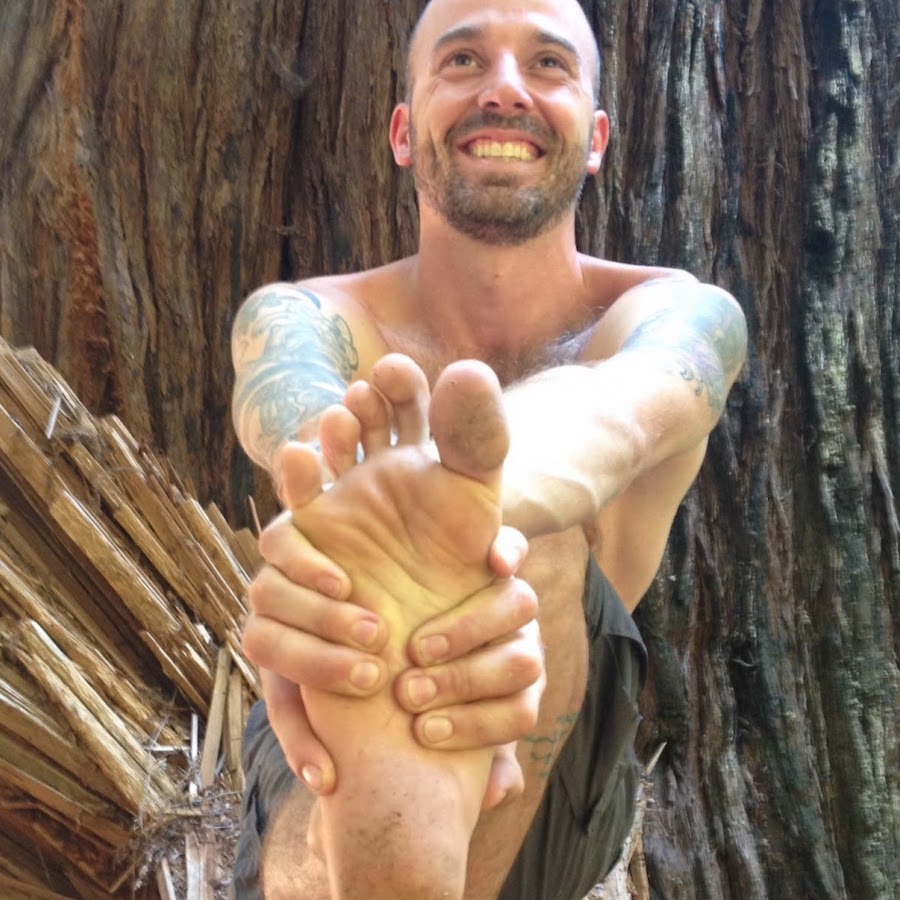
Absolutely. I completely understand. So let me flip it the other way. Why do you think women have long accepted these doctrines and allowed themselves to be subjugated, diminished, and even tortured for their femininity? What have you found in your research regarding this? I’m curious.
Protection. A lot of it. I mean, if you go back to living in a cave, it’s like, would you rather live with this cave man who’s protecting you and you got food coming in and all those sort of things? Or would you rather go out with someone who you don’t know who could potentially be worse? And that’s pretty rudimentary. But I would also say that people want to believe in others, they want to believe in love. And I think there’s more self-love going on these days. And so a relationship is harder for people. And because we get to have more of a selection and those sort of things. So I just feel like it’s changed and probably for the good, but it will change again.
And tell me why you feel it’ll change again? And what do you predict that it would change to?
Well, the earth has the the equinoxes and the solstices, and they’re marked in time and space and on a microcosm. We have a year-long calendar, but also we have massive cycles of like 5125 years or so and then times two and then that’s that. Each one represents a cycle, a cyclical nature. Masculine and feminine. And it’s a grander sort of mystical thing. But if you look back into history, you’ll see when it was starting to be recorded, we had a more feminine presence, more feminine rulers in Egypt and in the land of the Maya in Central America and other places like Mesopotamia.
Absolutely. I’m interested in what you’re saying here, Eli. So the cyclical nature of which gender is ruling versus the other? And I hate that word ruling, but it’s the only one that I can use for the context of this. What have you seen there? Because you just stated that at the beginning of recording time, there were a lot more leaders that were female or feminine in nature.
And then cyclically that changed to a more masculine. And then my understanding from what you’re saying is that will then consistently keep changing so that different genders are sitting in the hierarchy. Have I got that right or is there something you want to explain for us there from your understanding and your research?
You’ve got that right. And it’s like if you have a scale and one’s masculine, one’s feminine, to create balance, you’ll have a perfect like zero point in time where it’s perfect balance and then it spirals in a different direction and you have more feminine leadership or more masculine, depending on those grander cycles of time on earth.
“If you have a scale and one’s masculine, one’s feminine, to create balance, you’ll have a perfect zero point in time where it’s perfect balance and then it spirals in a different direction and you have more feminine leadership or more masculine, depending on those grander cycles of time on earth.” ~Eli Coberly
Look at the the women’s marches that occurred a few years ago and look at how we’re sort of reassessing what’s going on in society, but also look at how now there’s a lot of great men out there who are doing a lot of great things, but they’re starting to be marginalized because women are mad, they’re upset, or the feminine is. But that might be a part of it. Like in Hindu mythology, like Kali Mata, she’s a great dark goddess, but sometimes she’s necessary to cut off the heads of the ego.
Absolutely. And it’s really interesting that you understand what the purpose of Kali Mata is, is it’s not that she’s an evil entity, it’s that she is scarier than those that we fear. So that she’s able to bring them down. And it’s really interesting that you bring her into the conversation. I love this conversation. So I want to ask you something here.
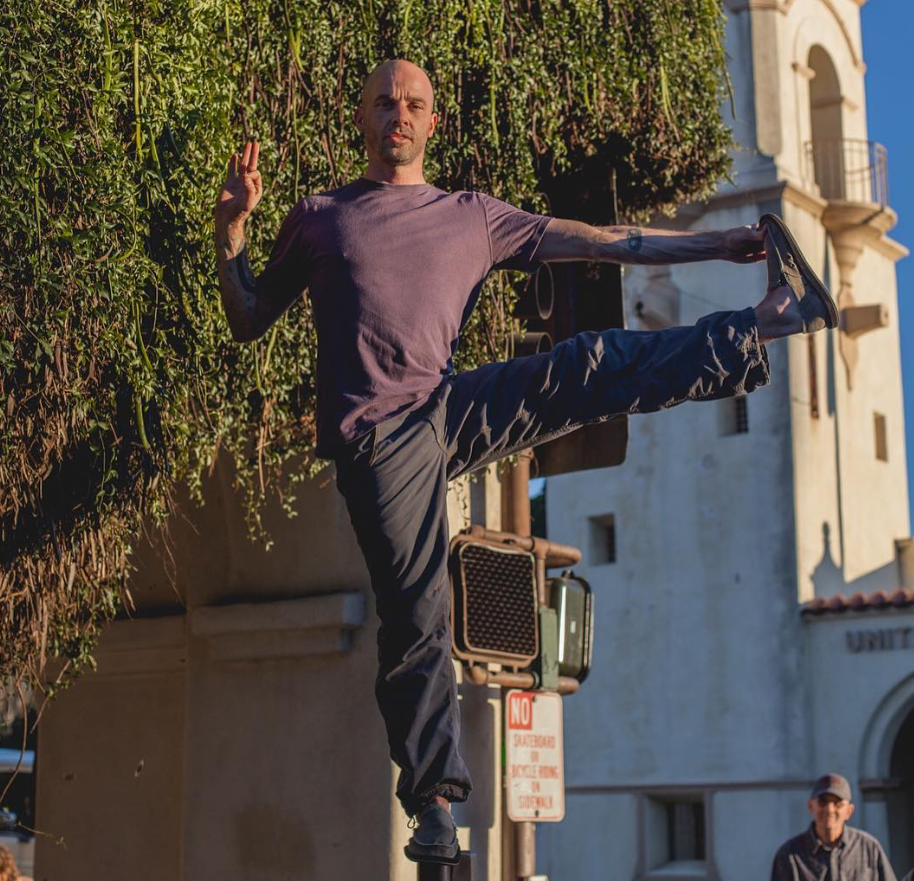
Actually, before I ask you the next question what’s come into my mind is it’s interesting to see if pushed far enough, no matter how you’ve been subjugated, no matter how you’ve been downtrodden, that at some point, something’s got to give and there’ll be this whole evolution of a whole other avatar of person that will arise from that that probably never would have come about if they weren’t so downtrodden.
So as much as we hate the thought of bringing people down, bringing down feminine feminism, for example, sometimes there is great good that comes from that and I think that ties in beautifully with your whole ideology of the cyclical nature of how the different gender traits — and I’m not talking man woman I’m talking traits of femininity and masculinity — show up in history.
So I want to ask you this: Why is honoring femininity important and not just that of being a woman, but just the feminine traits in general within men and women and other narratives?
I think the village in a small scale or large scale is you’ve got to do what’s right for everyone. And a while ago, I made a choice to try and do what’s right for the greater good of everyone instead of just myself. Although there’s merit to the self. But when you have a village you’ve got to make a choice and you’ve got to make a choice that affects everyone. You might want to do it in a receptive sort of way because in the end, society only lasts so long and so do the species. We’ve seen what has happened so far. And so now it’s time to act in a different way.
How would you feel the different way needs to be? What did you discover through writing this book?
I mean, just like it has happened over and over and over again. Look at the barbarians. They took over Rome. But also look at the Maya people in Central America. And you uncover a lot of the stories in history in the codex that were burned and all these sort of things. When you get into that, you’ll see, oh, well, these people traded already like we’ve seen a history that is happening. And it’s happened and it’s in their art and their art shows us everything that has happened already that didn’t work for them. And I call them the great test culture because they cut down the forests, they built these limestone things and they had all these massive priests and rulers, and then the one per cent and then all the people were subjugated as well. And that didn’t work out either.
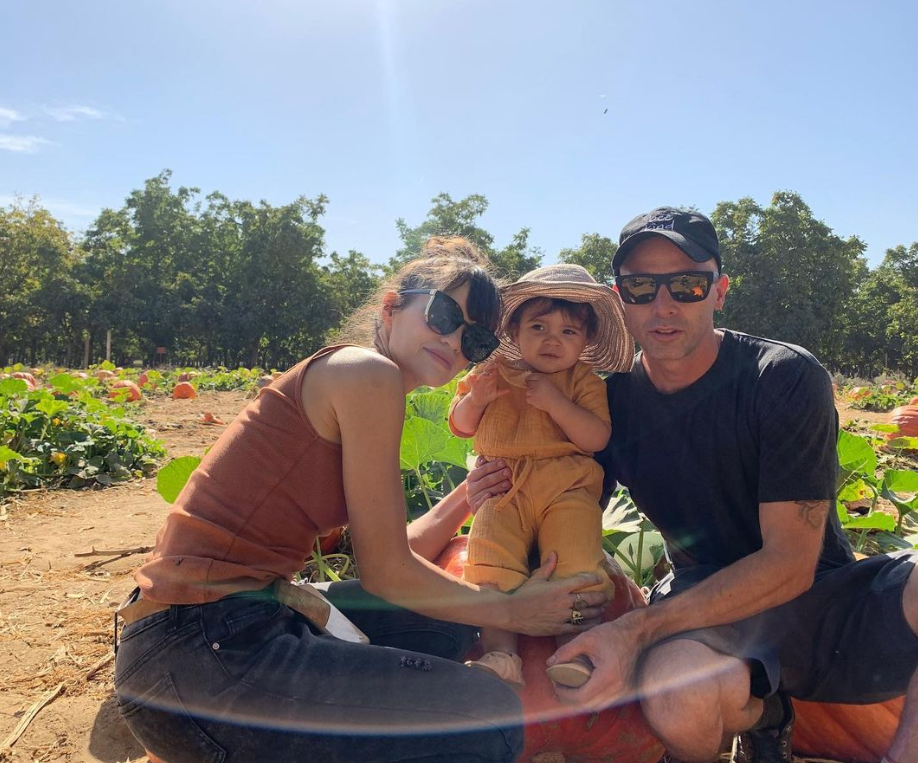
So what do you think needs to happen to work?
I say, just listen to your mother. Start listening to your girlfriend, start listening to your wife, your daughter. I have a four year old and she’s got great wisdom. I just say that if you treat the Earth like your mother, if we collectively treat the Earth like our mother, then we can ultimately start to change the cycles of time. And we don’t have much time left.
“If you treat the Earth like your mother, if we collectively treat the Earth like our mother, then we can ultimately start to change the cycles of time. And we don’t have much time left.” ~Eli Coberly
I love that. A very deep, beautiful, prophetic ideology. I really hope that if there’s anything, guys, that you get out of this conversation, it’s that I want to hone this in to different facets here. Eli we see inequity still play out today in our infrastructures, at home and at work, etc..
What have you learned from your research that you feel needs to happen today in order for there to be a more equitable alliance between femininity and masculinity? I know I’ve asked you this, but I feel like I want to regroup back to it in case anyone missed it.
And what I specifically am asking, where both work, where both femininity and masculinity can work together towards the same goal. But we know that they come at it from different perspectives, right? But that they’re working towards the same harmonious goal. What have you learned?
You can strive and you can strive but striving has its purpose because we build things. We build a temple for worship. We build a temple or a house for a home. So I think that metaphorically, in a masculine approach, it is a valuable thing and protection for the village. But also femininity is receptivity.
And so it’s kind of basic. It’s just the masculine penetrates and the feminine receives. But ultimately, each one can be both simultaneously and learn from each other by recognizing the qualities within the self, I’d say.
Absolutely. And it’s interesting because bringing it back to light, you know Shiva Shakti, which you mentioned earlier, Shiva is seen as this great wanderer and this is the adventurous, masculine spirit, right? That’s constantly in search for want of a better way to describe this. Whereas Shakti or Parvati is more domesticated and wants to have a space and a family and a home. You know what I mean?
And it’s interesting how even though they both are opposing, conceptually there’s great value to be had in Parvati, honing in Shakti, Parvati honing in Shiva to help ground him and keep him in a place of domesticity. But then also for Shiva to bring Shakti, earth lifeforce, outside her comfort zone as well.
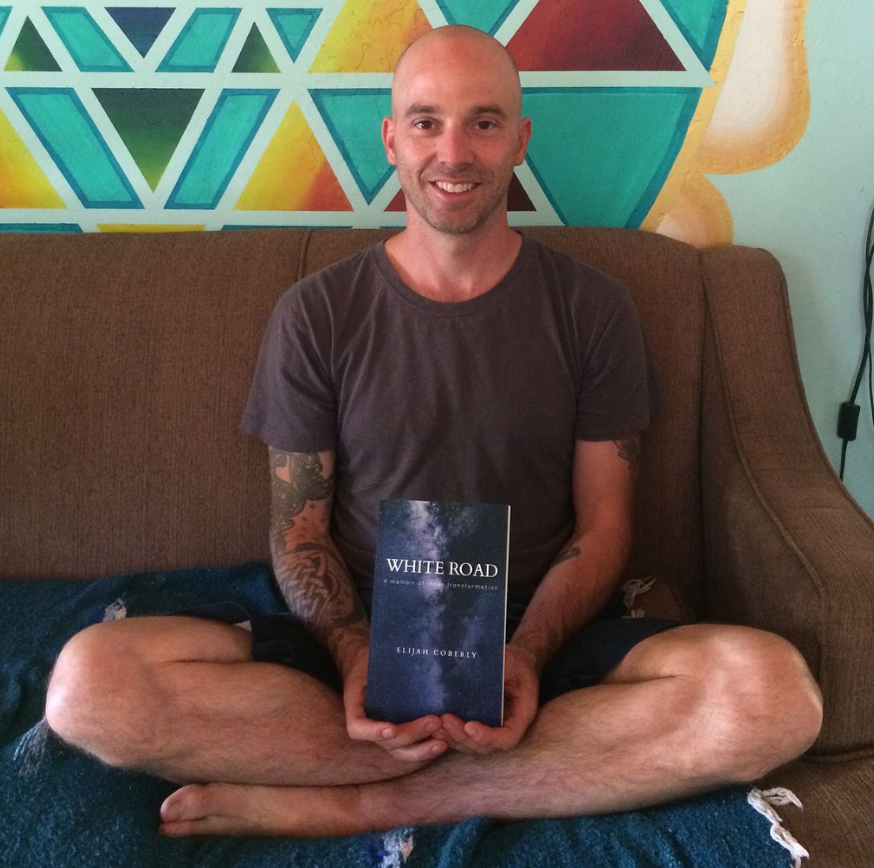
So it’s really lovely how the two can really work beautifully together, albeit they may be seen or perceived as being polar opposites, but polar opposites are there for a reason. One exists because of the other. One is content because of the other.
So let me ask you this, Eli: What would you say are maybe two or three things you feel that women need to do to help the masculine energy to meet her where she’s at?
Wow, That’s a lot of pressure, I’d say, but I’ll do my best.
Yeah.
What do women need to do? But if I tell my mom that, she’d be pretty upset. But I think it as far as support, women are very supporting when they’re in their true nature. And I think believing in someone ultimately and in someone who’s willing to do the work would be a good start. That’s one thing. And also trusting again.
Like in the coffee shop the other day, I just saw a man who walked up to a woman and he said, “Hey, I remember you. How’s it going?” She’s like, “Oh, I meet a lot of people. I don’t know who you are.” He’s like, “But we spent like 15 minutes talking one time.” And she says, “I don’t know.” And she’s on her phone. And that’s interesting because it didn’t seem very authentic. It didn’t seem like she really wanted to know or wanted to remember it.
I think we all have pain cycles, but I think the pain that we equivocate with the other sex or with other energy is preventing us from having true authentic relations.
“I think, we all have pain cycles, but I think the pain that we equivocate with the other sex or with other energy is preventing us from having true authentic relations.” ~Eli Coberly
That’s such an interesting perspective. And I do agree with you. But I also want to ask you the same question about men. What are two or three things that you feel men need to do to align their energy with the feminine?
Football is great and beer is great, right? People enjoy those things. And it’s the American ritual. But it’s not more important than being open and having a conversation. Also I think all these type of things where you know . . . So everyone’s got a pickup truck. And that’s good. And I had a pickup truck. I don’t have one now. I don’t like throwing things in the back of it anymore. I like to call and get it delivered or whatever. But I’m just saying if you equate your masculinity with a pickup truck or football or beer or something, it’s outdated. And that’s just an example, you know?
I think that also men are pressured to be the type of leaders . . . Like one time I went to a march in this town that I was living in and it was about equality or something. And people got up and they spoke in this small town and this guy gets up and he said, “I’m going to change everything and I’m going to run for office with no credentials, nothing.” And he just thought he was the man that should have done it. It’s sort of like we men think by being the leader of everyone that we’re all of a sudden going to change things when really it’s just becoming a part of a group.
In other words, and I could learn from this too, is being men’s groups, they have men’s groups everywhere, but it’s not a competition. And not every man, but a lot of men, are so competitive. We’re competing all the time. I mean, I can see for women. But those are outdated now. There’s more reasons to resonate with your brothers.
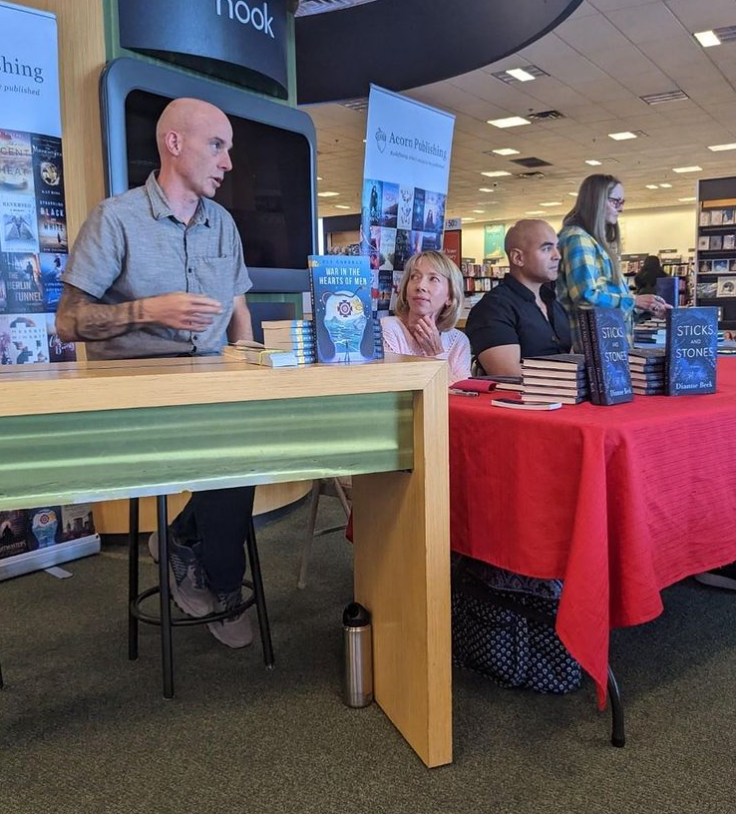
And that therein lies bringing forth the female characteristics within men. Right? Like collaboration, community lifting, everybody needing to be heard. It’s interesting that you said that. I want to look back on the theme of this show being about and I’m just going to restate the title: Undoing Masculine Toxicity to Make Room for the Feminine. Eli, is there anything you feel that we didn’t touch on that you’d like to share with everyone watching, listening, or reading this around the theme of today’s show and anything in your book that you feel we didn’t touch on?
I think, again, if the feminine understands a reason to trust again that it’s going to be a lot easier for men to open up. And I have this message to men: the toxicity is like, you don’t have to correct your father’s mistakes. You can just change now.
Yes. I love that you don’t live in that historical DNA. Create your own. Create what serves you. I love that. Any final words you’d like to leave everyone with before we close of Eli? Especially for people who bought into the importance of masculine and feminine traits needing to be equally accepted, valued, and honed regardless of who you identify as.
Just tolerance, like the Dalai Lama says. Tolerance is the number one thing that he’s talking about. Whether you’re Christian or Muslim or whoever you are or you identify as, there’s nothing wrong with being who you are.
“Tolerance, like the Dalai Lama says. Tolerance is the number one thing that he’s talking about. Whether you’re Christian or Muslim or whoever you are or you identify as, there’s nothing wrong with being who you are.” ~Eli Coberly
It’s as simple as that. And the most simplest ideologies are the most powerful. Before I let you go, where can people go hang out with you online? Do you have, social handles, anything like that that we can send people to?
Just Instagram eli_coberly you can kind of see my adventures there and my website. There’s a couple of things that it talks about there. I have a blog on there and stuff like that. You get an idea on my philosophy.
I love it. Thank you so much for coming on Eli. Honestly, like a lot of what you know, you’ve been talking about leaves a lot to ponder. Thank you so much for agreeing to come on and talk about your philosophies.
You’re welcome. Thanks, Raj.
Absolutely.
Folks. If you’d like to learn more about what we touched upon today, I highly recommend that you grab a copy of Eli’s book. War in the Hearts of Men. I’m telling you, the title just gives me shivers. And I really hope that you got some real value from today’s show and will share it with everyone you know who you feel needs to get today’s insights.
I also hope that you’ll subscribe to my YouTube channel and hit the notification button at the Open Chest Confidence Academy so that you’ll never miss an episode when we drop it on Wednesdays.
You can also download The Transform your Confidence Show on podcast platforms and please give it a five star rating if you feel it’s valuable and it’s a great resource to assist in your journey to empower your confidence with actionable insights.
You can also read the podcast. As you guys know, it’s on the theopenchestconfidenceacademy.com/media/podcast. And as I always say, guys, I hope to see you again next time we drop another episode, because I really want to ensure that you get the learnings and the insights to help you empower your work, your life and of course your spirit.
Take care of yourselves and have the very, very best day and week.


